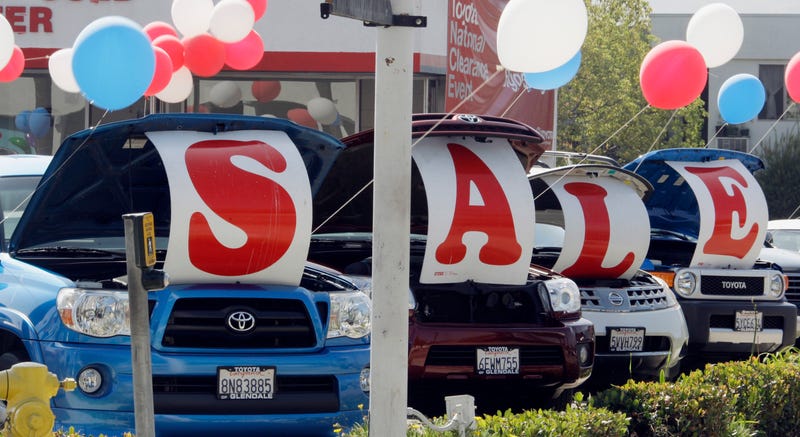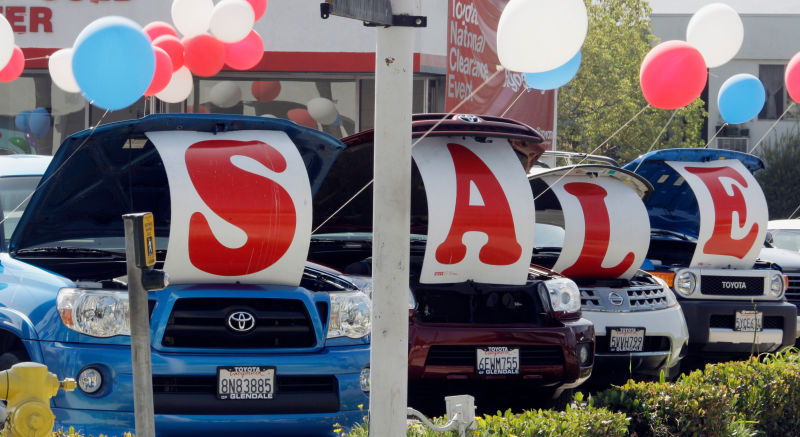
As Jalopnik’s resident car buying expert and professional car shopper, I get emails. Lots of emails. I’ve decided to pick a few questions and try to help out. This week we will discuss whether or not you missed out on deals if you didn’t buy before the New Year, and how to hedge against high mileage depreciation.
First up: Will the deals in January be worse than December?
We are/were looking at either a new Toyota Highlander, RAV4, Honda Pilot or CRV, and as the money came last Friday, we tried to rally to get a deal before the end of the year. After test driving them all over the weekend, we had zeroed in on the CRV as fitting our lifestyle and were lining up an offer. That is until I stumbled across the rating question on Consumer Reports related to the engine issues plaguing the 2017 and 2018. We tried to double back and go with the 2018 RAV4, but the dealer was down to a few left and decided they were no longer willing to negotiate on them. So we did nothing.
We are thinking about going after a Highlander now, but technically the Toyota incentives have expired. Have we missed out opportunity for a truly good deal?
A common car buying myth is that if you want to score a deal you need to do so the last week of December right before the New Year because dealers are desperate to make sales for both the end of the month and the end of the year.
I’ve covered before why this isn’t always the case, but I can tell you that you probably didn’t miss out on the deal of a lifetime. Most of those savings come in the form of discounts and rebates from the manufacturer, so the dealer’s ability to discount the car out of their own profit margins doesn’t really change from month to month or year to year. If they want to offer an aggressive price at or even below their invoice cost, they can do so.
Furthermore, with import brands tend to have fewer rebates compared to some of the massive sales like the domestic brands such as GM’s “Employee Pricing Program.” If you are looking at cars that are in very popular segments like compact and mid-size crossovers like a Honda CR-V or a Toyota Highlander, those are going to sell well—the automakers don’t really need to put a lot of cash on the hood. Therefore, you’re primarily working with the best dealer discount anyway.
Advertisement
One thing you want to know about Toyota is that rebates can vary from region to region, and the rebate follows the dealer, not the buyer. I had a customer in the New York City metro area buy a Tacoma near Philly because the dealer was willing to offer a steeper discount, but in addition to that Toyota was offering stronger rebates in that region that resulted in more savings. It pays to spread your net wide.
Next up, what is the best way to financially hedge against a car that will depreciate due to high mileage usage?
Just wondering if you have some general advice on this. When it comes to purchasing a car either new or used if I’m planning on putting higher than normal mileage on the car (20,000-25,000 annual) should I plan on paying extra on top of monthly payments to help stay less underwater on the loan? If keeping the car longer than the loan duration obviously that gets negated. Let’s say for this case its trading in the car at around 3 years on a 5-year loan. Are there leases that would allow for that sort of mileage and would they even make financial sense.
Advertisement
If you are going to buy a car and really rack up the miles there are a few ways to approach this. First, you can get something that has already depreciated, but given the mileage that means you would likely run out of warranty pretty fast. The other option is to buy something brand new, if that works for your budget, that will hold its value.
Look into a high-value car like a Honda CR-V or Subaru Outback, as even with a lot of miles on them their resale numbers should still be solid. Sedans are great deals right now but they’re not holding their value.
Advertisement
Also if you have the ability to drop a sizable down payment and establish a lot of upfront equity to keep you ahead of the curve, that would be recommended. Hedging yourself with extra payments certainly isn’t a bad idea, but you could also stash those extra payments away into a separate fund in case you need to use it to balance the scales on an underwater loan.
High mileage leases are sometimes an option but they are usually very expensive. I would suggest you stick with a purchase over a lease.
Got a car buying conundrum that you need some assistance with? Email me at tom.mcparland@jalopnik.com!













